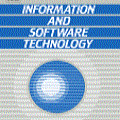Stereoscopic, head-tracked display systems can show users realistic, world-locked virtual objects and environments. However, discrepancies between the rendering pipeline and physical viewing conditions can lead to perceived instability in the rendered content resulting in reduced realism, immersion, and, potentially, visually-induced motion sickness. The requirements to achieve perceptually stable world-locked rendering are unknown due to the challenge of constructing a wide field of view, distortion-free display with highly accurate head- and eye-tracking. In this work we introduce new hardware and software built upon recently introduced hardware and present a system capable of rendering virtual objects over real-world references without perceivable drift under such constraints. The platform is used to study acceptable errors in render camera position for world-locked rendering in augmented and virtual reality scenarios, where we find an order of magnitude difference in perceptual sensitivity between them. We conclude by comparing study results with an analytic model which examines changes to apparent depth and visual heading in response to camera displacement errors. We identify visual heading as an important consideration for world-locked rendering alongside depth errors from incorrect disparity.
翻译:Stereoscopic, head-tracked display systems can show users realistic, world-locked virtual objects and environments. However, discrepancies between the rendering pipeline and physical viewing conditions can lead to perceived instability in the rendered content resulting in reduced realism, immersion, and, potentially, visually-induced motion sickness. The requirements to achieve perceptually stable world-locked rendering are unknown due to the challenge of constructing a wide field of view, distortion-free display with highly accurate head- and eye-tracking. In this work we introduce new hardware and software built upon recently introduced hardware and present a system capable of rendering virtual objects over real-world references without perceivable drift under such constraints. The platform is used to study acceptable errors in render camera position for world-locked rendering in augmented and virtual reality scenarios, where we find an order of magnitude difference in perceptual sensitivity between them. We conclude by comparing study results with an analytic model which examines changes to apparent depth and visual heading in response to camera displacement errors. We identify visual heading as an important consideration for world-locked rendering alongside depth errors from incorrect disparity.



